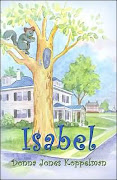It is Grateful Wed, and I'm grateful to have had the opportunity to attend the SCBWI Carolinas conference. I hope that I'll be able to share the rest of the notes with you today.
First of all, I'd like to add to my comments from Anita Silvey's talk. She shared the backstories of many well-known children's books (about 40!), so I couldn't tell ALL the stories, but I'll work them in when I can. For those of you who think you're doing a LOT of research for your latest writing project, let me tell you a story. Robert McCloskey of MAKE WAY FOR DUCKLINGS fame and brilliance wrote his manuscript based on a newspaper article. But then the illustrations were really getting to him. He drew hundreds, thousands of ducks, but just couldn't capture their essence like he wanted. So finally one desperate afternoon, he walked to Greenwich Village and bought a bunch of ducks home to live in his bathtub. He'd take them out on walks, let them run around his apartment, all the while, sketching non-stop. While having dinner with his room mate one night, he discussed his frustrations. As they opened another bottle of wine, Robert complained that if he could just get the ducks into slow motion, he could certainly draw them better. Sure enough, they fed the ducks a little dry red wine and they slowed down just enough for Robert McCloskey to draw the breathtaking and hilarious illustrations in MAKE WAY FOR DUCKLINGS. If you look carefully, you'll even see the images of a few drunk ducks.
My next talk I'd like to share is Alyssa Henkin's PICK UP THE PACE. She is an agent with Trident Media Group. Some of you may have been rejected by the likes of her like I have. (oh, excuse me, your WORK may have been rejected--BIG DIFFERENCE). Anyway, besides voice, pace is another biggie that captures the reader. She said, "If you pace and plot well, you'll always have work." She didn't actually mention what kind of work, but it sounds like a good thing!
She was really into OUTLINING. She challenged us to, like the Special K challenge, give it two weeks of serious outlining and see if it doesn't improve your work big time.
TOP TEN PACE SPECIFICS ACCORDING TO ALYSSA HENKINS
1. Start with action, something visual, even a motif
2. Think poker. Don't play all your cards.
3. Figure out the timetable BEFORE you start writing.
4. Give yourself permission to not write in order
5. REal life authenticity doesn't fly in books
6. Take stock every 50 pages
7. Writing is kind of like singing in the shower. It seems great when you're all alone, but you must recognize the need for improvement.
8. Be conscious of chapter beginnings and endings
9. Don't expect to get it all in one draft. REalize that editing and cleaning up will have to happen.
10. Think about the economy of language.
Final thought: like Rachel Ray, always have EVOO for every project. Extra Vigilant Outline Organization
My last session by Leslie Staub may have been my favorite. The topic was picture books, and she covered a ton of ground. She's an illustrator, so much of it was from the illustrator's perspective which I've actually thought a TON about since I fell in love with Floyd Cooper's work at Chautauqua this summer. She really emphasized the need to read lots of picture books to learn the line breaks, the sounds of a good picture book. She said to capture the heart of the editor, and you're golden. Think: Elegant Simplicity, Truth, and Depth. She recommended studying the following PBs in particular: OLIVIA, RUNAWAY BUNNY, TOUGH BORIS, THE GIFT OF NOTHING, MY FRIEND RABBIT, WHOEVER YOU ARE, THE KISSING HAND, AND MAKE WAY FOR DUCKLINGS. She showed us how to make a mock-up but said the only person who should send one to an editor is a professional artist and writer who wrote and illustrated the manuscript.
She closed with a Jane Yolen quote: BE SIMPLE. UNDERSTAND STRUCTURE. KNOW YOUR AUDIENCE.
Whew. Last of my notes. Ooops, actually I just found notes on Alyssa Henkin's keynote. I'll do those TOMORROW, like Scarlet O'Hara. djk
Welcome to ChitChat. I am the mother of four children and a writer of children's literature trying to make sense of it all. Join me as we talk about family, children, education, current events and GREAT BOOKS!
My Mission Statement
I write to serve, to unite, to educate. I write to share literature and flesh out ideas that may be of interest to others. I write to document an emotion, experience, or a blip in time. My mission is to write in such a way that the reader is reminded that we can find humor in all situations. It's one of the great blessings of life.
Wednesday, September 24, 2008
Grateful Wed and More Conference Notes
Subscribe to:
Post Comments (Atom)
Isabel by Donna Jones Koppelman

Major Bear at the Grove Park Inn by Donna Jones Koppelman

No comments:
Post a Comment